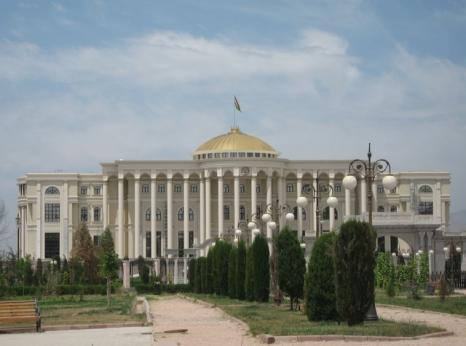Tajikistan: Tajik Refugee Disappeared After Deportation

Abdullohi Shamsiddin is the son of Shamsiddin Saidov (in some Tajik naming conventions the son of the father takes the father’s first name as his last), a leading member of the Islamic Revival Party of Tajikistan (IRPT). Shamsiddin Saidov has been living in Germany since 2014 and was recognized as a refugee in 2017. Abdullohi Shamsiddin also claims to have been an IRPT activist himself and to be closely acquainted with Muhiddin Kabiri, the party’s leader. The IRPT was Tajikistan’s most important opposition party, represented in the parliament for many years, until it was arbitrarily banned in 2015 and designated a “terrorist” organization. Following this, the authorities engaged in arrests and imprisonment of its leadership following unfair trials. Individuals associated with the party and its leadership have been targeted by Tajikistani authorities in Tajikistan and abroad, for arrests, extradition and persecution, and even lawyers who provided legal defence to party have themselves been subjected to brutal reprisals including long-term imprisonment under trumped-up charges.
Abdullohi Shamsiddin was refused international protection by Germany. For fear of reprisals by the Tajikistani authorities who have been targeting associates of the IRPT abroad, Abdullohi Shamsiddin reportedly had initially concealed his real identity and his relationship with his father, Shamsiddin Saidov, when he first applied for refugee status in Germany in 2009. This application was rejected in 2011. A follow-up application was submitted in 2017 and rejected in court in 2021.
An attempt to deport him via Munich Airport failed on 12 December 2022, because Abdullohi Shamsiddin panicked and purposely injured himself to avoid deportation. After this incident, he was held in custody to secure his deportation.
In a newspaper article on 29 December 2022, Abdullohi Shamsiddin was quoted saying: “In Tajikistan I will be arrested directly from the airplane – and disappear in prison for 20 years.” International organizations, including the Norwegian Helsinki Committee, Human Rights Watch and the German Abschiebungsreporting NRW, warned that Abdullohi Shamsiddin was under risk of detention and torture if deported to Tajikistan. However, the Federal Office for Migration and Refugees (BAMF) rejected his second follow-up asylum application in a fast-track proceedings on 21 December 2022.
On 6 January 2023, the Gelsenkirchen Administrative Court ruled against the suspension of deportation stating: “It is not significantly likely that he would be exposed to an exceptional situation within the meaning of Art. 3 European Convention on Human Rights [torture or inhuman or degrading treatment or punishment] in the event of a return to his country of origin due to his particular individual situation.” On 19 January 2023, the same Court refused to stop the ongoing deportation (in transit) and did not accept the authenticity of newly presented evidence, namely a private paternity test which proved the relation between Shamsiddin Saidov and Abdullohi Shamsiddin, and a testimony by a Tajik refugee who testified that he had identified and disclosed the whereabouts of Abdullohi Shamsiddin when he himself been tortured in Tajikistan in 2019.
Abdullohi Shamsiddin was deported from Dusseldorf via Turkey. According to the Norwegian Helsinki Committee, relatives waiting for him to arrive in Tajikistani capital Dushanbe on 19 January 2023 did not see him leaving the Airport. According to information from confidential sources close to Abdullohi Shamsiddin, he was likely detained by Tajik authorities near the airstrip immediately after landing.
Tajikistan’s security agencies routinely target dissenters and opposition figures, as well as their relatives and intimates. Torture and other ill-treatment of detainees during interrogation by various security agencies, particularly the State Committee for National Security or the so-called Sixth Department of the Ministry of the Interior, is common in Tajikistan to extract “confession,” secure information and incriminate others. Torture methods used by Tajik security agencies allegedly include sticking of needles into the nails, electric shocks, beating, sexual violence, sleep deprivation, suffocation with plastic bags and injection of drugs. Shortly before Abdullohi Shamsiddin’s deportation, detainee Abdukakhkhor Rozikov died in police custody in the city of Kulob, on 2 January 2023. His suspicious death was widely attributed to torture and there are photographs and videos of his body, which corroborate this allegation, although the officers claimed that he died of a drug overdose. The case resonated widely among Tajiks inside the country and in exile, leading to offline and online protests.